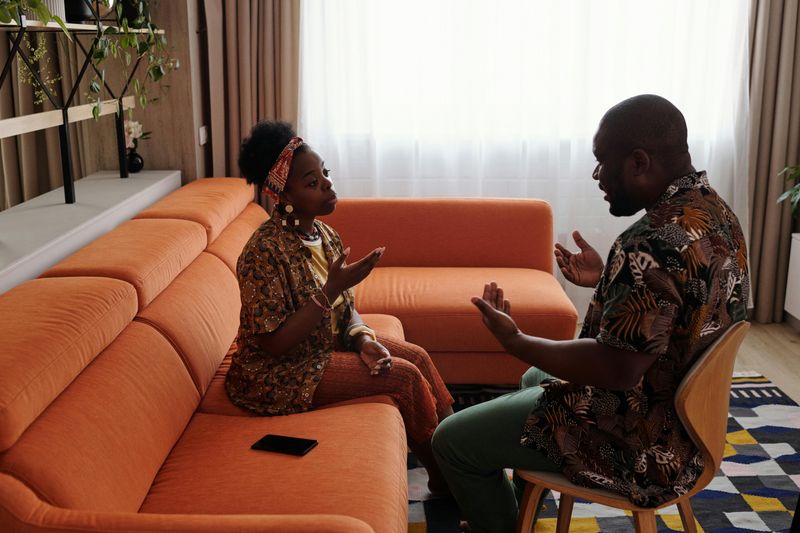10 Types of Behavior That Make Relationships Harder Than They Should Be

Relationships can be wonderful, but sometimes we get in our own way. The way we act and respond to each other can either build a strong connection or slowly tear it apart. Understanding these harmful behaviors is the first step to creating healthier, happier relationships with the people we care about most.
1. Keeping Score Instead of Keeping Peace

Tallying up who did what wrong becomes a dangerous game in relationships. When you start counting mistakes or comparing contributions, you’re no longer partners – you’re opponents.
Remember that time your partner forgot your anniversary? Or when they didn’t help with dishes three nights in a row? Keeping mental scorecards breeds resentment and makes forgiveness nearly impossible.
Healthy relationships aren’t about being perfectly equal in every moment. They’re about both people giving their best overall and supporting each other through ups and downs without calculating who owes what.
2. Avoiding Tough Conversations

Small issues grow into relationship-destroying monsters when left unaddressed. Many people sidestep difficult topics hoping problems will magically disappear, but silence only makes things worse.
Your stomach knots when something bothers you, yet you say “everything’s fine” to avoid rocking the boat. This pattern creates distance as unspoken feelings pile up between you both.
Brave conversations build stronger connections. Learning to discuss uncomfortable subjects respectfully shows you care enough to work through challenges together rather than letting them silently damage your relationship from within.
3. Mind-Reading Expectations

“If they really loved me, they’d know what I want without me having to say it.” This thinking creates a relationship minefield. Nobody, not even your closest partner, can consistently guess your thoughts, needs, or desires correctly.
Unexpressed expectations lead to disappointment and frustration on both sides. You feel hurt when your partner doesn’t magically understand, and they feel confused by your sudden mood shift.
Clear communication beats mind-reading every time. Expressing what you need directly gives your relationship a fighting chance instead of setting it up for failure through impossible standards.
4. Criticism vs. Complaints

“You never help around here” hits differently than “I’m feeling overwhelmed with housework.” The first attacks character; the second addresses a specific situation. This difference matters tremendously in relationships.
Character attacks put partners on defense, triggering protective responses rather than problem-solving. Words like “always” and “never” make conversations feel like character assassinations instead of fixable issues.
Focusing complaints on specific behaviors and your feelings about them keeps discussions productive. “I feel lonely when we don’t spend time together” invites connection, while “You’re so selfish with your time” creates distance.
5. Stonewalling During Conflicts

Walking away mid-argument, giving the silent treatment, or emotionally checking out when things get heated might feel protective, but actually damages relationships deeply. This shutdown response leaves partners feeling abandoned exactly when connection matters most.
Some people stonewall without realizing it – their bodies physically react to conflict by freezing up. Their faces go blank, responses become minimal, and they appear completely disconnected while internally they’re overwhelmed.
Taking short, agreed-upon breaks during arguments can be healthy. The key difference is communicating: “I need 20 minutes to calm down, then we’ll talk” versus disappearing emotionally without explanation.
6. Playing Relationship Detective

Checking phone messages, tracking locations, or interrogating about every unexplained hour destroys trust faster than almost any other behavior. When you constantly investigate your partner, you create the very problem you fear.
Even if suspicion started with good reason, detective behaviors rarely lead to relationship healing. Instead, they create a surveillance state where both people feel constantly on edge and mistrusted.
True security comes from rebuilding trust through transparency and consistent actions over time, not through force or control. If you can’t stop checking up on someone, it might be time to examine whether the relationship can actually meet your needs for security.
7. Bringing Up Past Mistakes

“Remember when you did the same thing three years ago?” Resurrecting old, supposedly forgiven issues during new disagreements is relationship poison. This behavior shows that past conflicts were never truly resolved but merely buried temporarily.
When old hurts keep reappearing, it prevents current problems from being addressed on their own merits. Partners begin walking on eggshells, fearing anything they do wrong will become permanent ammunition.
Truly resolving issues means processing them completely, learning what’s needed, and then letting them rest in peace. New disagreements deserve fresh discussions, not a parade of ghosts from conflicts past.
8. Passive-Aggressive Communication

Slamming doors instead of expressing anger directly. Making sarcastic comments rather than stating feelings clearly. These indirect expressions of negative feelings create a confusing relationship environment where nothing is quite what it seems.
“Fine, whatever you want” said with crossed arms and an eye roll isn’t actually agreement – it’s conflict in disguise. This communication style forces partners to guess what’s really happening, creating anxiety and insecurity.
Healthy relationships thrive on straightforward communication where feelings and needs are expressed directly. “I’m disappointed we can’t go to the movie tonight” beats sighing dramatically and making your partner figure out what’s wrong.
9. Public Humiliation or Teasing

Joking about your partner’s flaws in front of friends might seem harmless, but it can deeply wound trust. “Don’t mind my husband, he couldn’t find his way out of a paper bag!” Laughter follows, but something important breaks in the relationship.
Everyone has sensitive spots they trust their partner to protect, not expose. When those vulnerabilities become public punchlines, it signals that the relationship isn’t a safe haven.
Save constructive criticism for private moments. In public, be your partner’s biggest fan instead of their comedy material. This builds a foundation of mutual respect that strengthens your connection both in public and behind closed doors.
10. Refusing to Apologize Sincerely

“I’m sorry you feel that way” or “I’m sorry, but you started it” aren’t real apologies. These non-apologies actually make things worse by dismissing the hurt person’s feelings while appearing to take responsibility.
Genuine apologies acknowledge specific actions, express real remorse, and offer changed behavior. They don’t include justifications or shift blame back to the hurt person.
Learning to apologize properly is relationship super-glue. It repairs breaks that might otherwise become permanent fractures. “I’m sorry I interrupted you during the meeting. That was disrespectful, and I’ll be more mindful next time” heals wounds that fake apologies only deepen.

Comments
Loading…